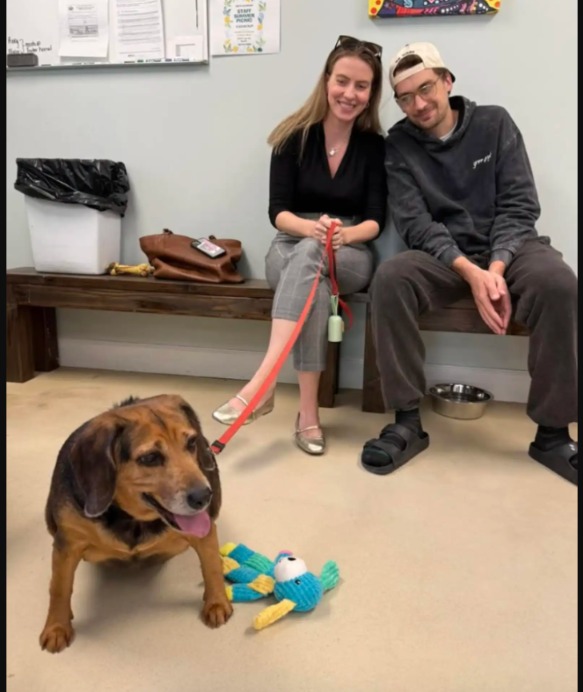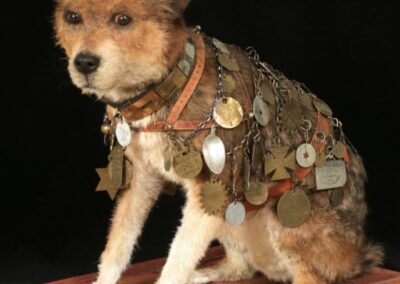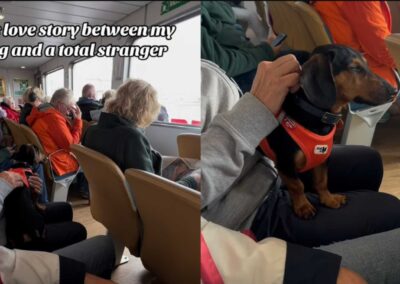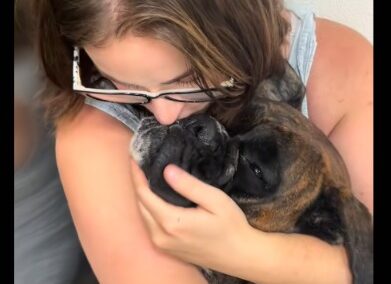
The shelter staff all know him by name.
He’s a sweet beagle with soft eyes, a wagging tail when someone pats him, and a coat that tells stories of both love and neglect.
But lately, what tugs at their hearts isn’t just how many treats he wants—it’s how loud strangers are being about his size.
This beagle is overweight. That fact isn’t new to the shelter workers who see him every day.
It’s obvious he’s gained more pounds than a healthy beagle should carry.
Some of it is from past neglect, limited opportunities to run or play, maybe food choices he had no control over.
But what’s newer and painfully sharper is the unkind words people mutter when they pass his kennel—or worse, proclaim loudly in front of him.
Visitors wander through, see the beagle, and instead of offering kindness, they laugh.
They point. They mock. They snap photos of him hunched over waiting for food, or clutching his chew toy in his paws.
Some make jokes about “lazy dogs” or “fat beagles.” Others go further and record short videos with teasing captions.
For shelter staff, who do all they can to help him feel safe and loved, those moments sting.
They see past the extra weight. They see his hopeful eyes, his gentle manner, his longing for affection.
And they hate seeing him reduced to what strangers see on the surface.

The staff gently remind visitors: this beagle didn’t choose to be heavy. He didn’t choose to be ignored or mocked.
He’s here because someone cared enough to rescue him, and because others care enough to foster change.
They try to educate.
Offer suggestions: kindness in voice, patience in body-language, treats measured just right, walks—even short ones.
Because for dogs like him, small acts mean everything.
When the staff talk about him, there’s no shame. There’s empathy, yes. Frustration, sometimes. But above all, a fierce love.
They bring warm blankets. They give gentle pets. They join him for walks.
They encourage visitors to see the dog behind the belly. To see loyalty, softness, hope.
And this beagle deserves a home where he will be loved, not judged.
Where his family will help him lose the weight in ways that feel good—walks, healthy food, consistency—and where no one will mock him or call him names.
Where kindness is the first thing visitors say instead of looking at him as something to criticize.

Because mockery doesn’t help heal. It doesn’t help him lose weight.
It just hurts. And this beagle—who’s been through enough—needs less hurt, more understanding.
His story is a quiet plea for compassion.
A reminder that rescue dogs carry more than bones or fur.
They carry memories, expectations, fears.
And often, they carry something beautiful too: gratitude for those who show up for them anyway.
Every time someone stops to pet him, to smile instead of sneer, to say “you’re doing great,” that beagle’s tail wags with a little more pride.
He’s worth more than cruel jokes.
He’s worth love.
Always.



